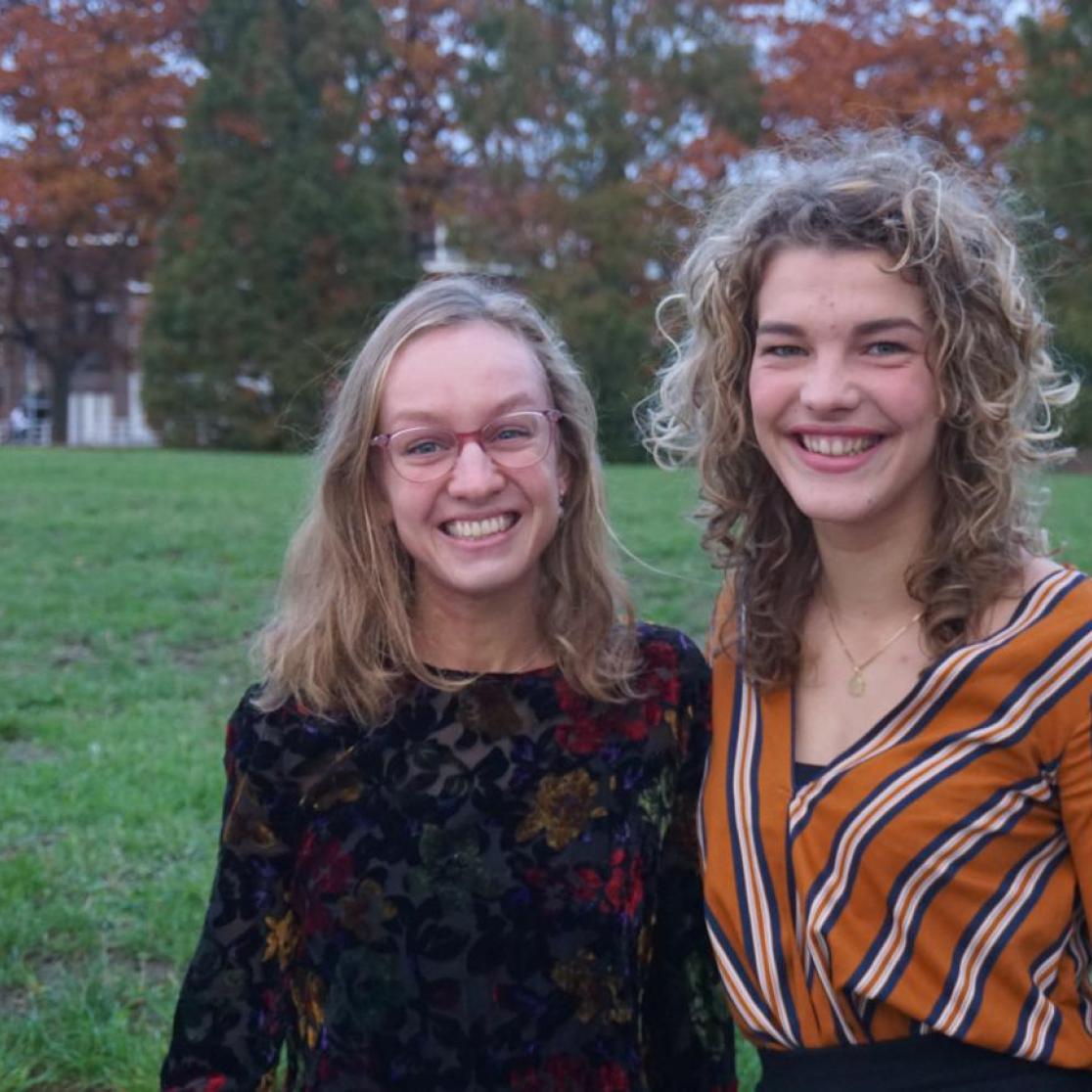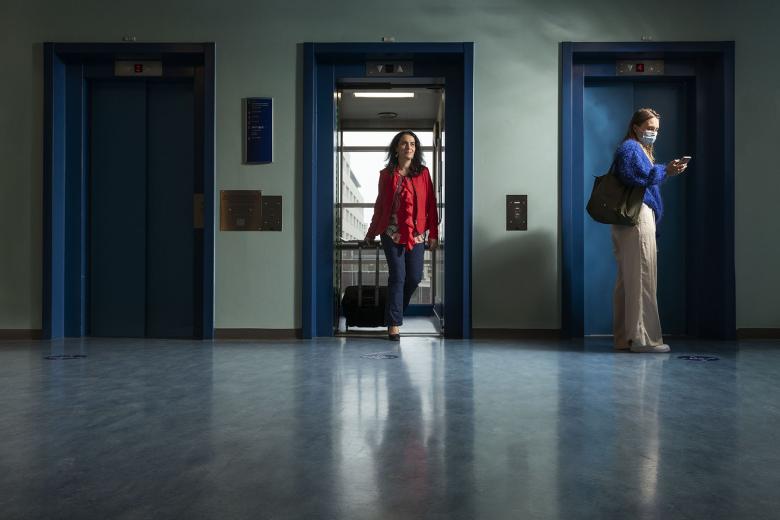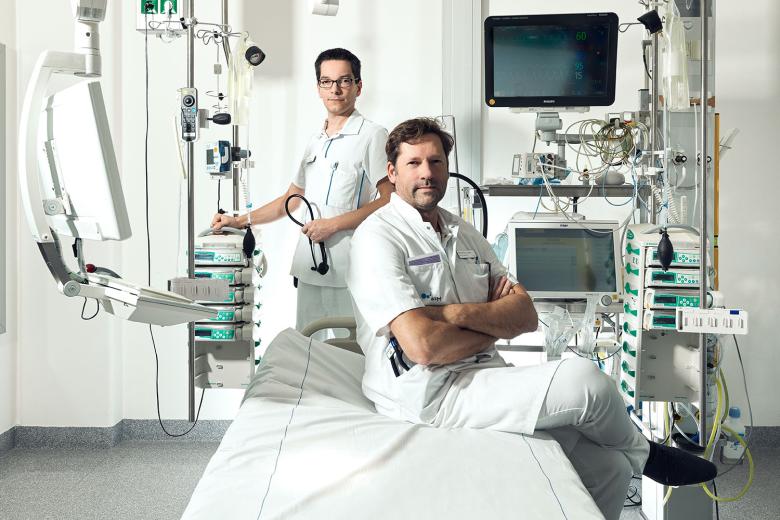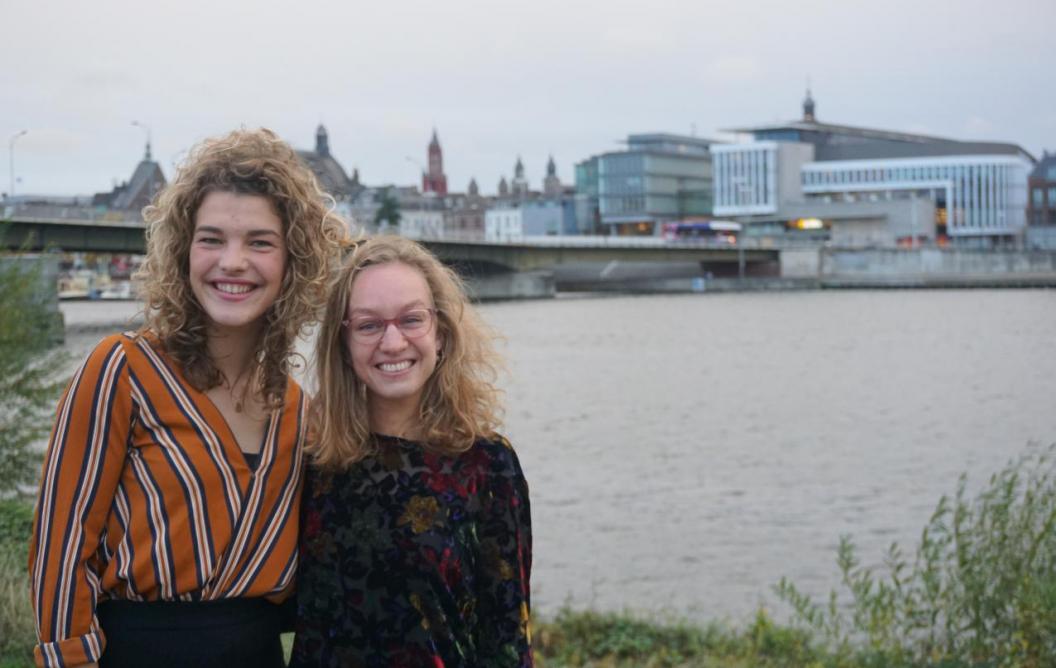MAP can help you become a better caregiver
You can’t really be a good caregiver until you also take the person behind the patient into account. This is why Stichting Mens Achter de Patiënt (Person Behind the Patient Foundation, or MAP for short) stimulates education in which people share their personal stories with students getting their degree in healthcare. A win-win for both parties!
“One of the people sharing their experiences told me his brain injury causes him to drop things often. This was the reason he was afraid to hold his newborn grandson for months; he was too afraid he would drop the baby. Hearing this had a huge effect on me. Normally, when you think about dropping things, cups or plates come to mind. I never could have imagined it could have this kind of impact on someone. This is why the stories these ‘experience sharers’ tell us are so important.” Dante Mulder has been the director of Stichting MAP since September. After getting her bachelor’s degree in medicine at Maastricht University, she took a year off to take on this responsibility. Her predecessor, Eva Visbach, has returned to her health science study, and is providing Dante with help behind the scenes.
Eyeopeners
Dante: “During my program, I learn all about various syndromes. I learn how to diagnose and choose the best remedies, but what we don’t learn is about the mental and emotional effects being sick can have on someone. The opposite applies too. Patients expect that as a doctor, you know everything, even though healthcare professionals can also naturally be insecure or uncertain at times. In MAP, we bring these two worlds together. People who have experience with illness, healthcare or well-being get together in small groups to share these experiences with students who are working in the care sector. This results in very valuable conversations, and sometimes really small things can be real eyeopeners. After all, how many doctors watch the entire consultation on their computer screens without even being aware of it?”
People-oriented healthcare
“MAP is about people-oriented healthcare. And people-oriented healthcare starts with people-oriented education,” Eva says. “We want to make healthcare and welfare professionals more aware of the impact illness can have on people, and help them act with compassion. We also want professionals from the secondary vocational to university educational levels to work together in a centralized manner so that they can communicate better and form an effective team. This was the idea behind the start of MAP in 2017 by Sjim Romme and Matthijs Bosveld in collaboration with Maastricht University. They saw the need that was there.”
Teamwork
Dante: “This need is being recognized by more and more parties. We don’t just work with educational programs at all levels, but also with the Zuyderland and Maastricht UMC+ hospital organizations, for example. Together with healthcare insurer CZ and other partners such as Burgerkracht Limburg, we are developing the idea of a MAP academy. We want to work with CZ to start a training course for people sharing their experiences, for example. We also want to increase awareness about the MAP approach among professionals. After all, MAP wasn’t around when they were still in school. It’s so great to see how MAP leads to awareness, that people are starting to think more about people-oriented healthcare.”
Positive for people sharing experiences and students
Eva: “Another thing that’s so nice to see is how MAP can benefit both the people sharing their experiences and the students. The people sharing their experiences see their participation as a form of personal development. They feel useful and really like meeting each other on our participant days. The people sharing their experiences are now also represented on the board. Students write in their ‘reflection letter’ what they have learned from MAP, and say that participating in MAP has helped them become better healthcare professionals. The students also learn from each other. Secondary vocational students often look up to the others. It’s so nice when they realize they have a lot more experience with patients than the rest. At university, you don’t really get the chance to meet any real patients during your entire bachelor’s degree program, apart from work on simulated patients.”
“Professionals really want us to learn”
“Corona has caused us to put a lot of energy into the proper digitization of our teaching modules,” says Dante. “This and our collaboration with CZ are two important issues that I am working on now as director. Some of my fellow students think it’s strange that I’m taking a gap year for this. Personally, I find it very interesting and educational. I’m building a very interesting network, getting a taste of ‘grown-up’ life. What I really love is seeing how happy people are to help and share their knowledge with you. There are so many people who support our approach.” Eva: “I can relate to this. During the year I was director, I had a lot of great experiences. Professionals really do want us to learn.”
Source: Brightlands newsletter

Ambitions
Dante: “In 2017, MAP had 20 people sharing their experiences and 30 students participating. We now have 300 experience-sharing participants and 1,200 students in the Netherlands and Belgium. Last year we were nominated for the Marc Cornelissen Brightlands Award, which had a lot of advantages for us. We got a lot of publicity and good contacts out of it, and we had the opportunity to pitch MAP during a work visit from the Life Sciences and Health Top Sector delegation, part of the Ministry of Economic Affairs and Climate. Our goal is to get a permanent spot for MAP in the healthcare and welfare program curricula. We have already made long-term agreements with Zuyd University of Applied Sciences and Vista College, and we hope to be included in the next curriculum review at Maastricht University. Even though MAP isn’t ‘compulsory material’ in the program, many students voluntarily choose the MAP module. This is very promising for the development of people-oriented healthcare.”
Click here for more information on Stichting Achter de Mens (in Dutch)
Also read
-
Healthcare for undocumented migrants
Together with her master’s students, Milena Pavlova is investigating the access to healthcare of undocumented migrants. Her findings give cause for concern: in many countries, this group has no or little access to healthcare.

-
Organ donation after euthanasia still rare
Due to an acute shortage of organ donors, hundreds of people die each year in the Netherlands and Belgium alone. One large group of potential donors may not even be aware that they can donate their organs: people who opt for euthanasia. For his PhD research, Jan Bollen studied the issue of organ...

